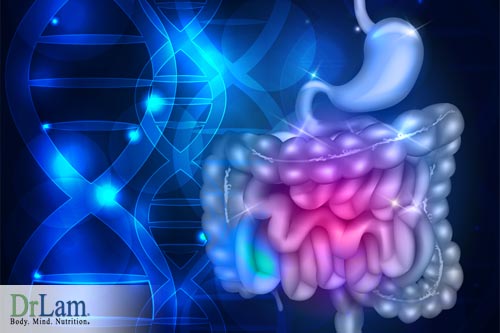
 The concept of fluid electrolyte balance has been popping up frequently throughout mainstream and alternative medicine these days and it’s time to delve a little deeper into the facts regarding its merits. Let’s start off by stating that there is no question that maintaining healthy levels of electrolytes is absolutely necessary for a healthy dietary balance as they are present in every cell within our bodies.
The concept of fluid electrolyte balance has been popping up frequently throughout mainstream and alternative medicine these days and it’s time to delve a little deeper into the facts regarding its merits. Let’s start off by stating that there is no question that maintaining healthy levels of electrolytes is absolutely necessary for a healthy dietary balance as they are present in every cell within our bodies.
An electrolyte is merely a substance which produces an electrically conducting solution when dissolved. For the purposes of this article, the dissolution of electrolytes mainly takes place in water inside of the body. There is a broad spectrum of electrolytes including salts, acids, and bases.
From a physiological standpoint, it is the purpose of the electrolyte to maintain extracellular fluid as well as intracellular fluid. There is a precise balance that is needed to keep the intra and extracellular fluid at proper levels because they regulate the hydration of the body. Not only this, but proper fluid electrolyte balance is imperative to regulation of blood pH as well as nerve and muscle function. When the levels of fluid are imperfect, such as in the state of overhydration and dehydration, there are increased risks for neurological and cardiac complications if the imbalance is not fixed quickly.
Some of the most commonly necessary electrolytes are sodium, potassium, magnesium, and calcium. To start with sodium imbalance, there are a number of symptoms and signs that it has taken hold in your body. When your body has improper sodium levels, it can show up through lethargy, seizures, and confusion. There are two extremes that this sodium imbalance can take; too much sodium or too little sodium. Both of these conditions have negative effects on your fluid electrolyte balance and need to be reconciled as soon as possible if present.
There is a self-regulating system in place that our bodies use to manage fluid electrolyte balance and the workhorse organ that takes care of the majority of this burden is the kidneys. Your kidneys aid in maintaining concentrations of electrolytes by acting as a filter to remove excess levels from your blood and return electrolytes to the blood when necessary.
Potassium, the majority of which is located inside of your cells, is integral in muscle, cell, and nerve function. There is a very small range through which your body can safely maintain potassium levels. Potassium is directly related to heart function as improper levels can lead to dysfunctional heart rhythms and even cardiac arrest. You can easily maintain sufficient levels of potassium through the maintenance of a proper diet. Apricots, peaches, bananas, avocado, and potatoes are all foods that contain high levels of potassium so they are a good place to start. The introduction of a high potassium diet has even been shown to lower blood pressure in people who struggle with hypertension.
 Even though almost ninety-nine percent of calcium is stored in the bones, it is also present in the blood and also in muscle cells. Calcium is responsible for proper formation of bone and teeth, blood clotting, proper heart rhythms, and more. Calcium is so essential to the functioning of the body that when it has low levels, it moves calcium from the bones into your bloodstream. This is not a problem when it only happens in emergencies but a diet that is insufficient in calcium can cause a low calcium fluid electrolyte balance and result in a loss of bone density. Some people who have mal-digestion issues or other gastrointestinal disorders may not be able to absorb enough calcium through food and, in those cases, dietary supplementation might be necessary. If you are curious about the amount of bone loss or calcium uptake that you may have you should consult your doctor as there are many available tests that accurately test for calcium deficiency. One of the often overlook facts is that if the pH of our body is low ( acidic), the body will automatically leach calcium out of the bones in order to neutralize and raise the pH level back to normal. A persistent excessive state of acid in the body can therefore contribute to bone density reduction over time.
Even though almost ninety-nine percent of calcium is stored in the bones, it is also present in the blood and also in muscle cells. Calcium is responsible for proper formation of bone and teeth, blood clotting, proper heart rhythms, and more. Calcium is so essential to the functioning of the body that when it has low levels, it moves calcium from the bones into your bloodstream. This is not a problem when it only happens in emergencies but a diet that is insufficient in calcium can cause a low calcium fluid electrolyte balance and result in a loss of bone density. Some people who have mal-digestion issues or other gastrointestinal disorders may not be able to absorb enough calcium through food and, in those cases, dietary supplementation might be necessary. If you are curious about the amount of bone loss or calcium uptake that you may have you should consult your doctor as there are many available tests that accurately test for calcium deficiency. One of the often overlook facts is that if the pH of our body is low ( acidic), the body will automatically leach calcium out of the bones in order to neutralize and raise the pH level back to normal. A persistent excessive state of acid in the body can therefore contribute to bone density reduction over time.
The adrenal system is our body’s defense against outside threats. What happens when we don’t treat our bodies as we should; this system does not have the tools to continually respond in the way that it needs to and we are led head first into adrenal exhaustion. Adrenal Fatigue Syndrome (AFS) has a plethora of contributing variables such as stress, lack of sleep, and mal-absorption. Fluid electrolyte balancing could very well be a key factor in mitigating its effects.
An important functioning part of the adrenal system puzzle is the pituitary gland. A part of the endocrine system, this pea sized gland is located at the base of the brain. It has an extremely important role in the synthesis and secretion of hormones. The electrolyte that most affects the pituitary gland is sodium. Sodium levels are regulated by a hormone known as aldosterone. Aldosterone is created through the adrenal cortex under direction of a hormone called ACTH (adrenocorticotropic hormone) which is secreted by the pituitary gland. When aldosterone levels are increased during times of stress, your body will have higher cellular water retention and this can result in bloating and increased blood pressure. All of this takes place in the beginning stages of Adrenal Fatigue Syndrome (AFS).
Once AFS has progressed into its more advanced stages, the body cannot maintain aldosterone production levels and the ability of sodium and water retention is compromised. It is at this point, which is better to avoid if possible, that a reversion to fluid electrolyte balance is necessary. It is prudent to take an active role in the replenishment of electrolytes into the body because, if deficiencies persist, the consequences of electrolyte deficiency will continue to become worse. It is important to note that when you are replenishing your electrolytes, it must take place slowly to avoid further complications and shock to an already weakened body.
 Stress often triggers many physiological and neurological responses. The NeuroEndoMetabolic (NEM) Stress Response involves the entire picture of what stress does to our bodies. Our initial focus in this section is in relation to the gastrointestinal (GI) tract.
Stress often triggers many physiological and neurological responses. The NeuroEndoMetabolic (NEM) Stress Response involves the entire picture of what stress does to our bodies. Our initial focus in this section is in relation to the gastrointestinal (GI) tract.
The GI tract is responsible for the uptake of initial electrolyte absorption and also for secondary re-uptake of electrolytes when they are introduced back into the body by way of the kidneys. A part of the NEM Stress Response is involved in lowering blood flow to the gut and this can lead to malabsorption of electrolytes. This is extremely important to note because it has a compounding effect. What essentially happens is that we become stressed, our bodies don’t properly intake electrolytes because of decreased blood flow to the GI tract, and then because of that lowered blood flow we can’t replenish the electrolytes that have been lost. This means that we’re stressed, malnourished, and unable to intake proper quantities of electrolytes at the critical stage when they’re needed most which is a “perfect storm” for failure.
While reading that last paragraph you may have felt a little hopeless but there is something you can do to change your fluid electrolyte balance. Our bodies have the amazing ability to recover from these times of stress and regain strength. One of the keys that should be emphasized is that when you enter a stressful situation with proper nutrient levels, you give yourself a head start. This can keep you from experiencing a catastrophic shutdown and prevent you from advancing closer towards complete exhaustion.
There are, it should be recognized, individuals who suffer from genetically inherited diseases which make proper nutrient absorption nearly impossible. For those people, it is encouraged that before you decide to switch to an alternative medicine or dietary supplementation protocol, please consult your personal practitioner and always look into multiple sources when doing research. You can never be too careful when deciding to make changes for your health and wellness.
The takeaway for fluid electrolyte balancing should be that maintaining sufficient levels is the goal. Whenever our bodies have a lack of core nutrients and minerals, there will be unintended consequences. Earlier we noted a few examples of high potassium foods to introduce in higher quantities but there are definitely more.
Sodium, being essential for proper hydration and water retention, should be maintained at adequate levels in a healthy diet. It does matter where you get your sodium as there are more natural and healthy options than highly processed table salts. Rock salts and mountain salts can be a wonderful addition to your cooking while providing other electrolytes such as magnesium and calcium. Looking for more viable, all-encompassing ingredients to use in place of traditionally touted modern products can help you integrate more electrolytes per meal than you otherwise would have.
 You can get sufficient calcium from vegetables like broccoli, spinach, and soybeans along with a host of other nutritional benefits. Once you begin to look into the foods that provide nutrition on a multifaceted level, you will almost assuredly notice improvements in the way you feel. When your body receives what it needs from what you routinely consume, which many of ours don’t, it will be much easier to overcome fatigue and stress than previously thought. Next time you think about your body and health, put an overall perspective into place that takes into account the dietary choices that you make and relate it to the way you feel. You will be better for it. Do not over supplement with calcium. Balance it with magnesium at a ratio of one to one. For example, take 500mg of magnesium if you are taking 500 mg of calcium. Some forward looking clinicians are advocating a two to one magnesium to calcium ratio. Bear in mind that excessive magnesium can lead to diarrhea at which point you need to reduce your intake.
You can get sufficient calcium from vegetables like broccoli, spinach, and soybeans along with a host of other nutritional benefits. Once you begin to look into the foods that provide nutrition on a multifaceted level, you will almost assuredly notice improvements in the way you feel. When your body receives what it needs from what you routinely consume, which many of ours don’t, it will be much easier to overcome fatigue and stress than previously thought. Next time you think about your body and health, put an overall perspective into place that takes into account the dietary choices that you make and relate it to the way you feel. You will be better for it. Do not over supplement with calcium. Balance it with magnesium at a ratio of one to one. For example, take 500mg of magnesium if you are taking 500 mg of calcium. Some forward looking clinicians are advocating a two to one magnesium to calcium ratio. Bear in mind that excessive magnesium can lead to diarrhea at which point you need to reduce your intake.
Your fluid electrolyte balance isn't something you probably think about very often. And yet it's essential for your body's pH levels and for your muscle and nerve function. Imbalances in these levels can be very dangerous, particularly if you have adrenal fatigue and are experiencing a high level of stress. If you're concerned about your electrolyte balance, here's what to do:
For more information on electrolytes and stress, call +1 (626) 571-1234 or click here to talk to one of our team members.
© Copyright 2017-2020 Michael Lam, M.D. All Rights Reserved.
